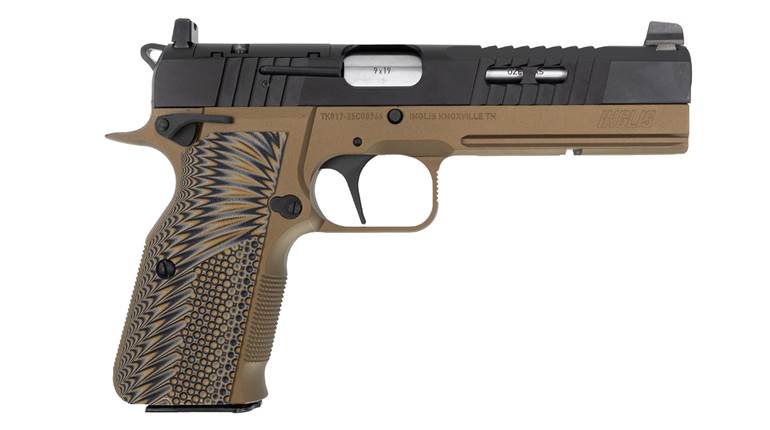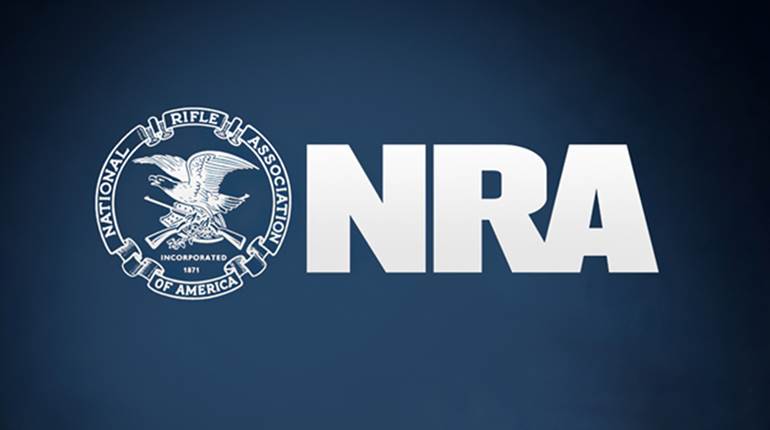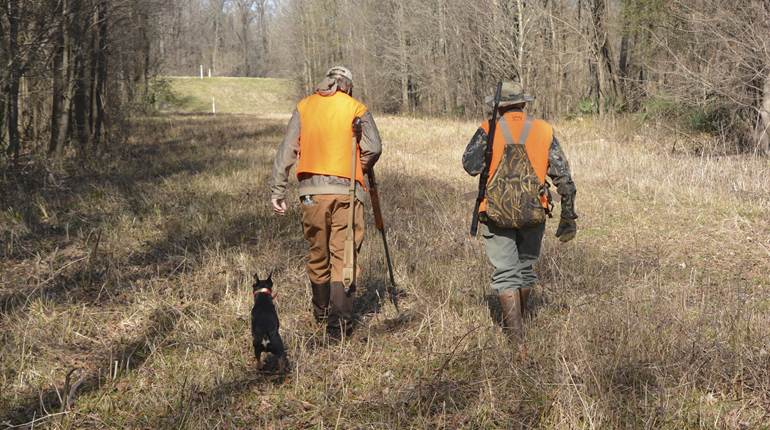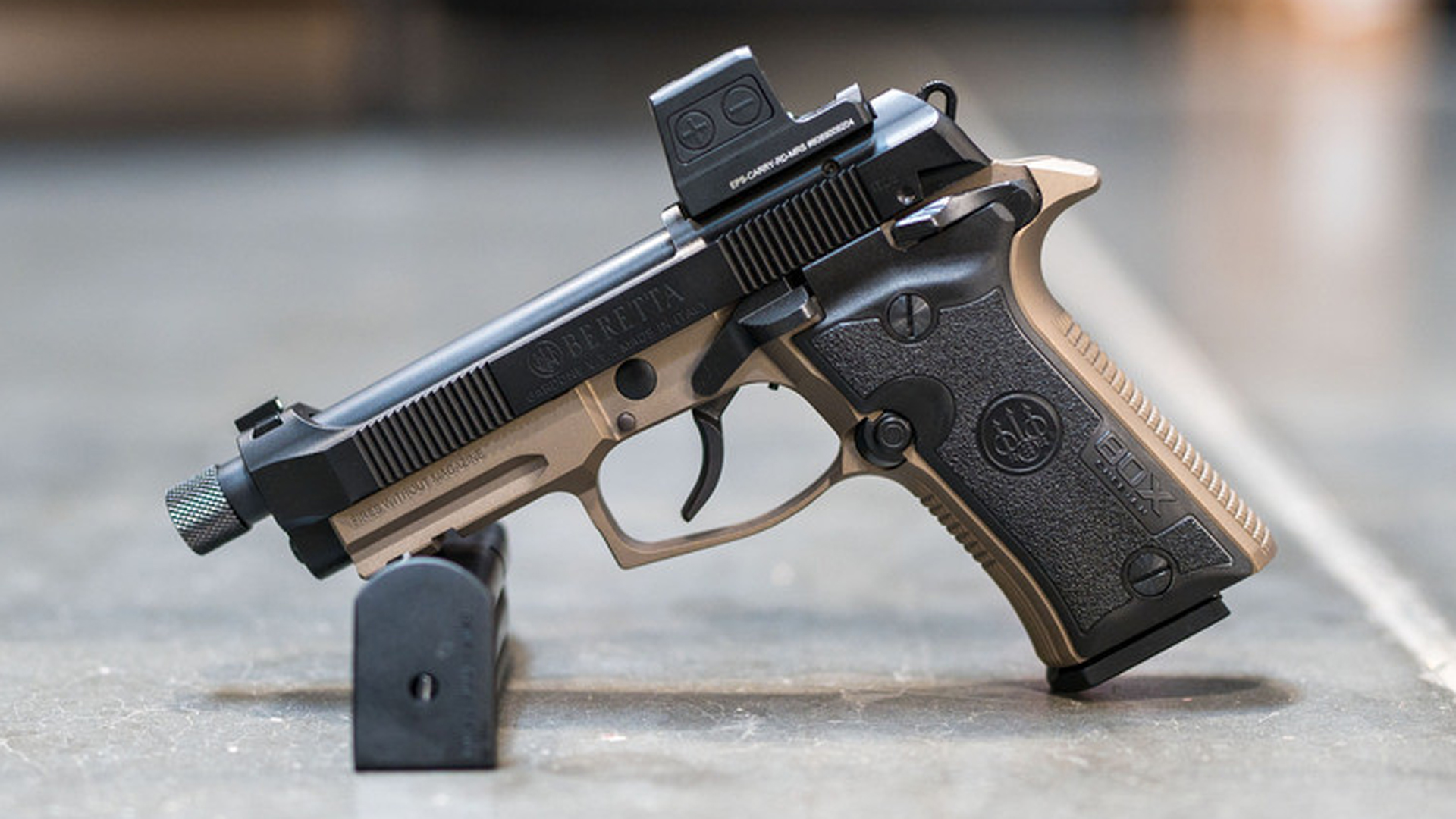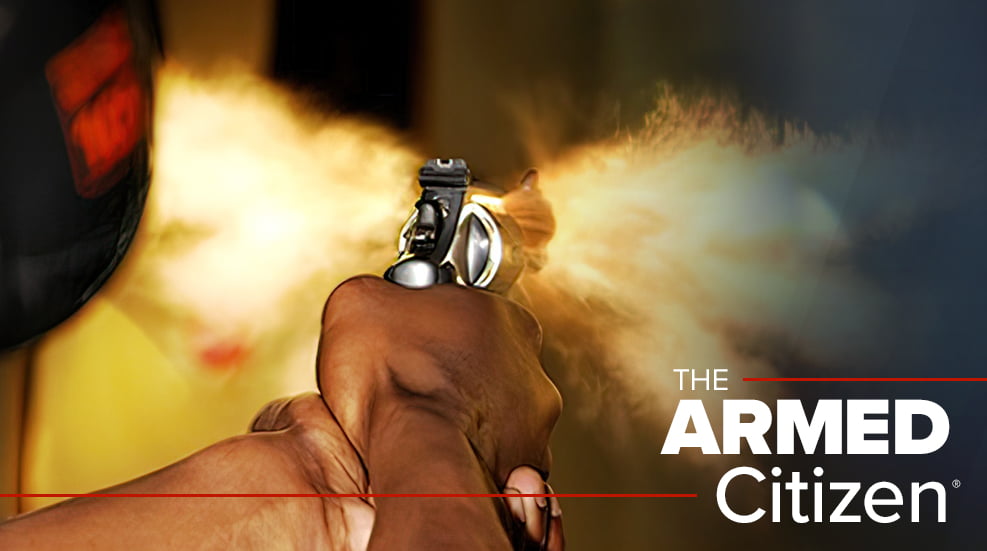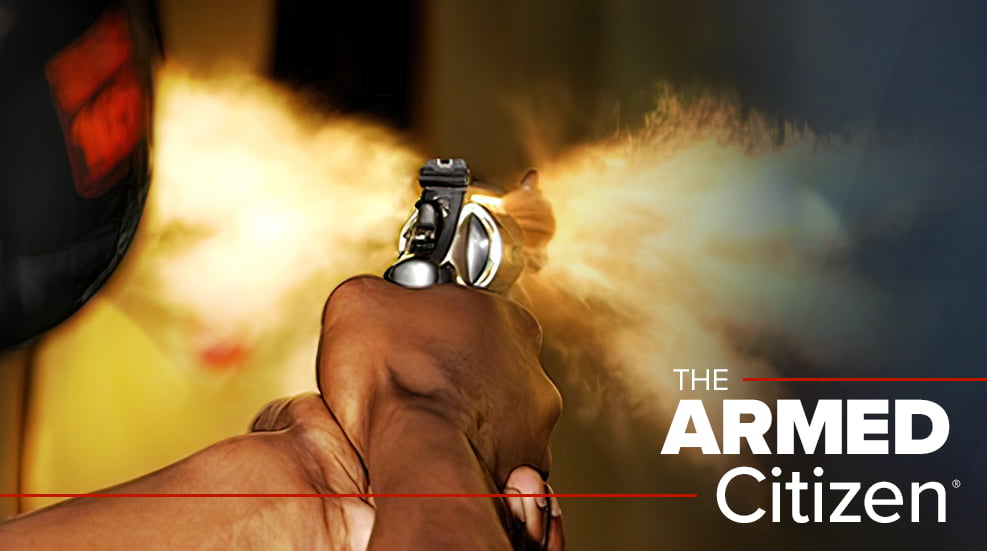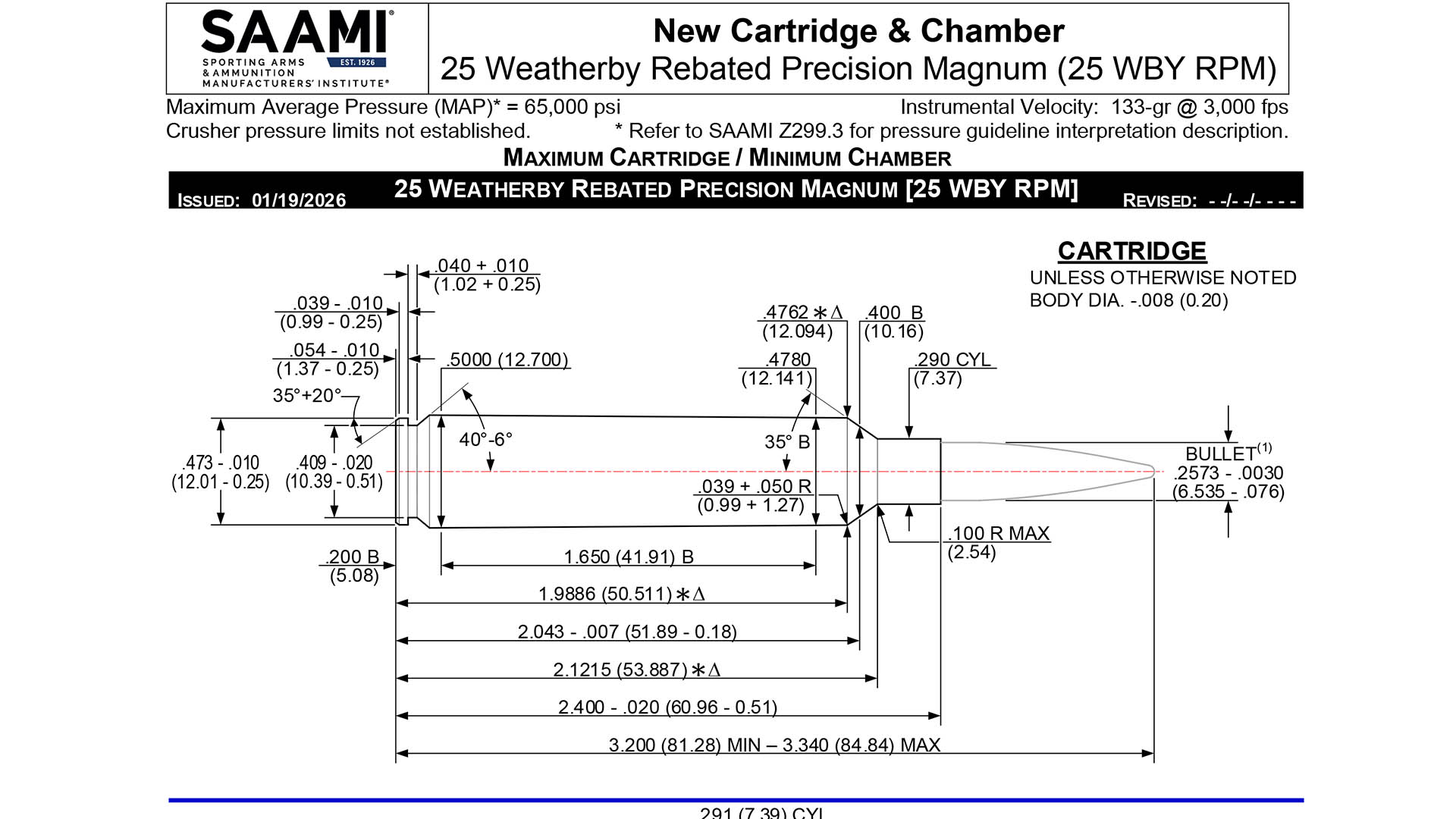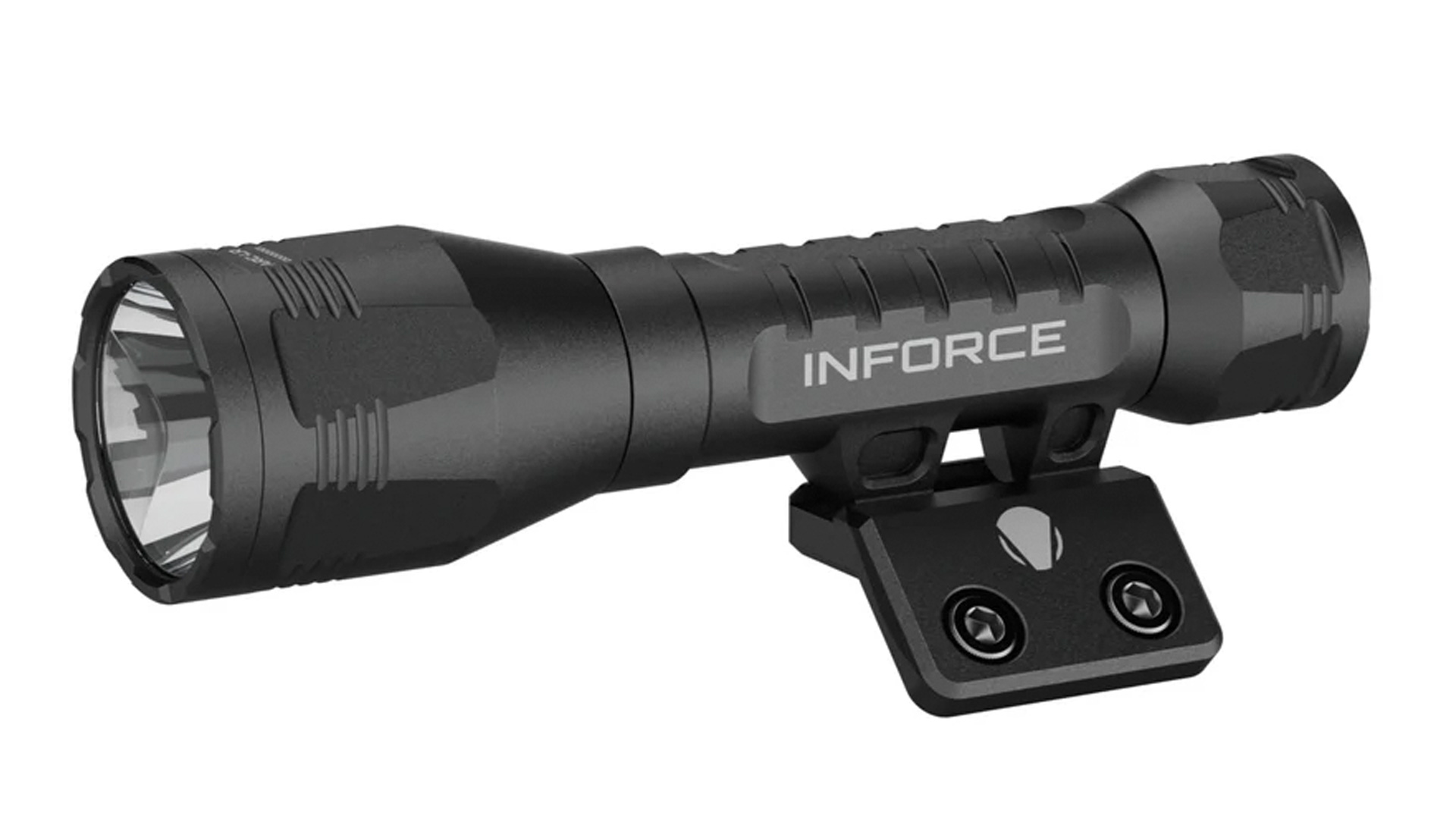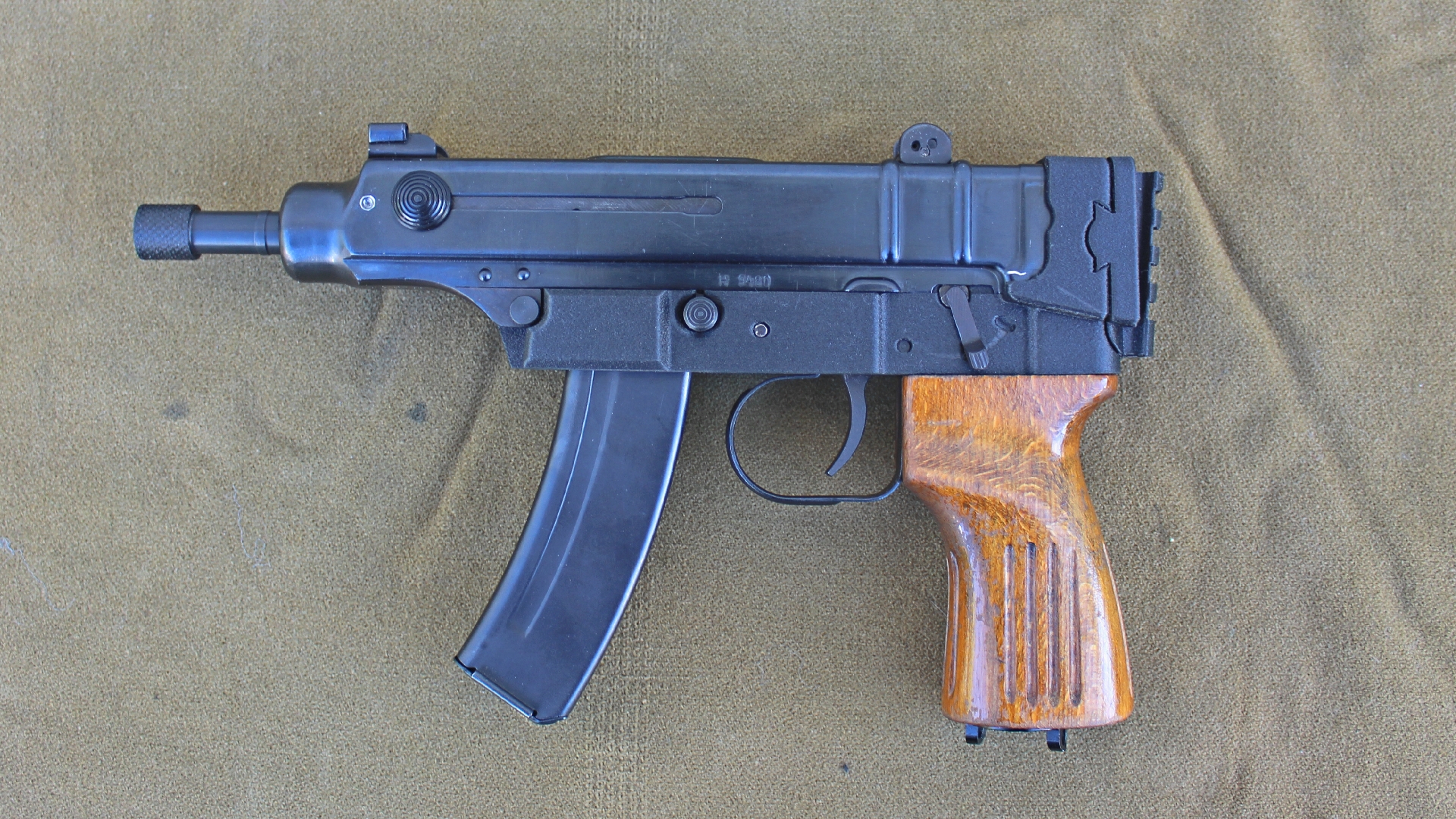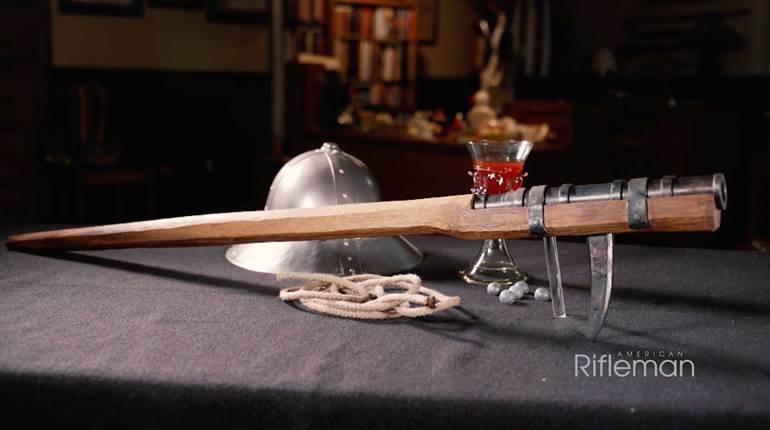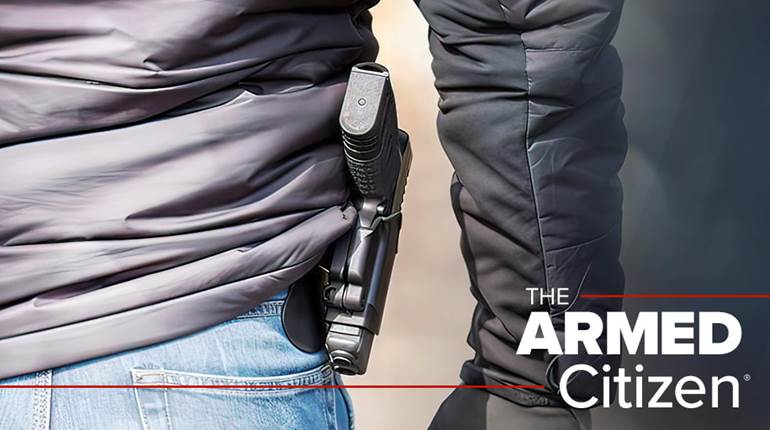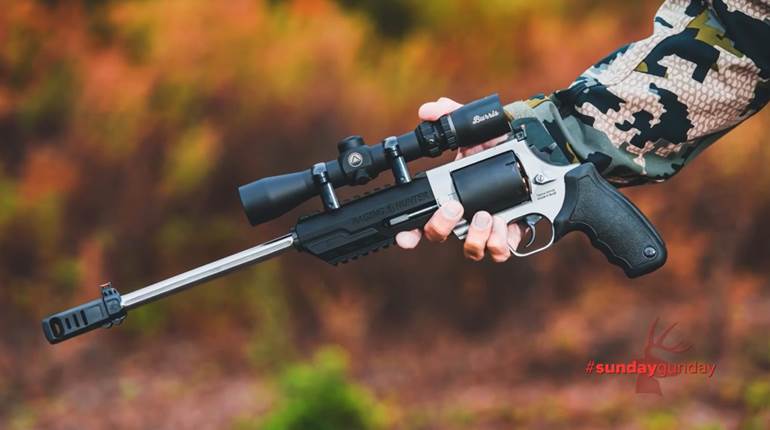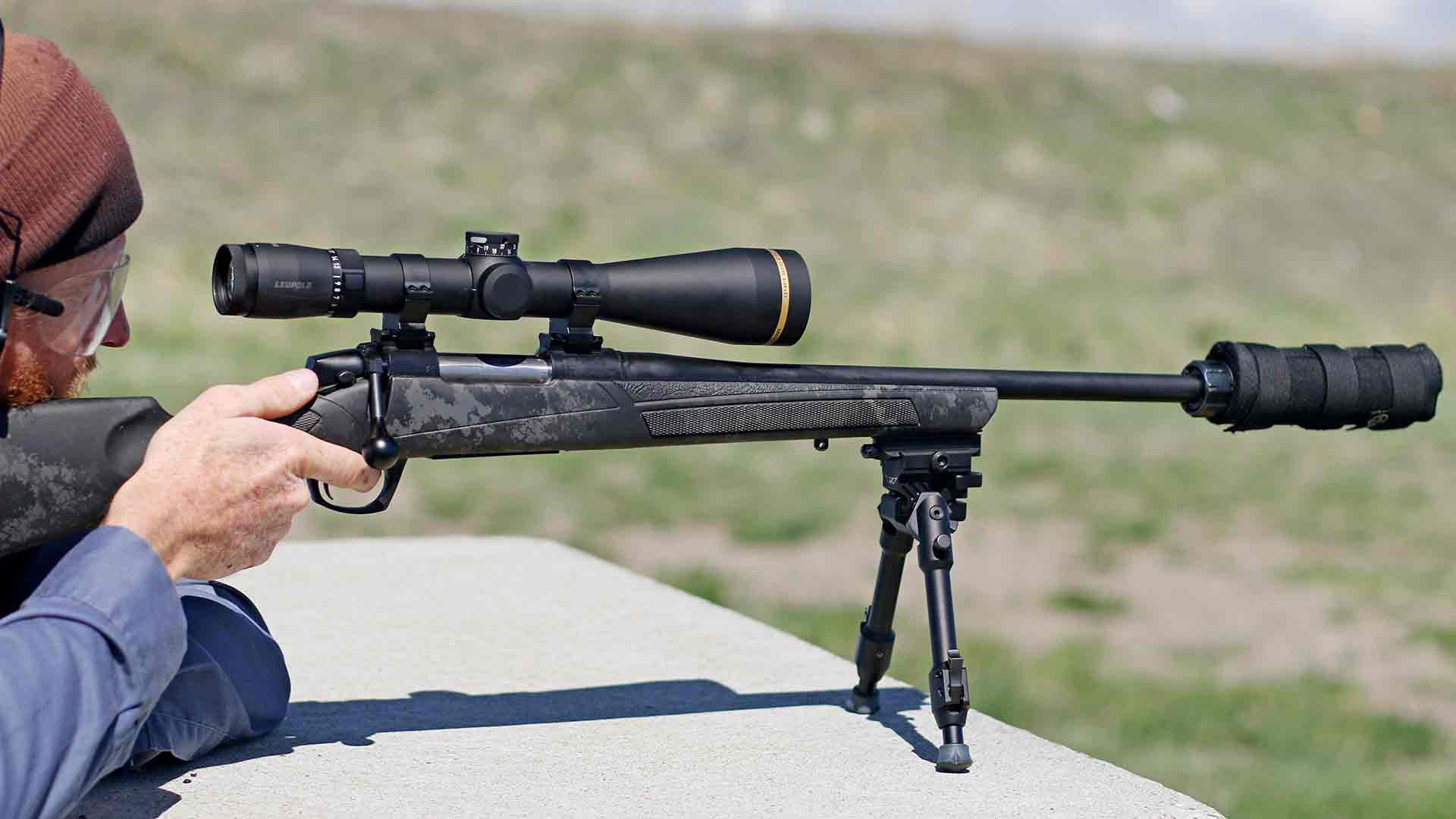
Sound suppressors, also known as “moderators,” (or by the popular misnomer “silencer”) are as old as modern firearms themselves. Advances in smokeless propellant in the late 19th century increased the “bang” of shooting a firearm, due to the higher pressures they generate. Hiram Percy Maxim, son of the famed inventor of the Maxim Gun, is credited with designing the first suppressor for firearms around the turn of the 20th century.

A suppressor is a simple device, typically a hollow tube that encases a series of baffles with a hole in the middle. What we think of as “noise” is the amplitude or intensity of the energy caused by the sound wave as it passes through the air. As the gases that push the bullet down the barrel exit the small area of the bore into the atmosphere they expand rapidly. By taking that gas and spreading its volume out over a larger area inside the suppressor, you lower its pressure.
While the bullet can pass through the center of the baffles in a suppressor, the expanded gas slams into the series of baffle “walls” and is slowed down, cooled and dissipated. To understand this process better, think about the difference in the sound created when an automobile tire blows and loses all its pressure rapidly versus when it loses its air over a longer period of time with a slow leak. Same volume and pressure of gas. Different release.
If you’re starting to think this sounds a lot like how the muffler on your car works, you won’t be surprised to find out that Maxim was developing car mufflers at the same time as his firearms suppressors.
Since the National Firearms Act was signed into law in 1934, suppressors have been highly regulated, but not impossible to own. Currently, they are legal for civilian ownership in 42 states. The suppressor was originally marketed to the sportsman and recreational shooter and they offer the same benefits to the modern firearms owners that they did 120 years ago. Here are five of those benefits:
One: Suppressors Protect Your Hearing and Make Your Range Time Safer

In late 2020, the United States Marine Corps announced plans to begin issuing a suppressor to every member of its combat squads. The Marines cited two reasons for doing so. First, reducing the noise generated by weapons firing makes it easier to communicate on the battlefield. Second, they expect the use of suppressors to help prevent long-term hearing loss in their service men and women.
Lowering the noise and protecting your hearing are the most obvious benefits from using a suppressor on your firearms. The sound created by shooting a gun ranges between approximately 140 dB and 175 dB. The average suppressor lowers the level of that sound by about 15 dB to 45 dB. That’s about as much as what your average hearing protection, like ear plugs or shooting muffs, reduce the noise. A decibel is the measure of the pressure level that a sound wave creates. Since decibels are measured on a logarithmic scale, a 6 dB to 10 dB decrease in sound equates to a halving of the sound’s perceived loudness.
You can add to a suppressor’s effectiveness by using subsonic ammunition. Because the bullet fired from a subsonic cartridge doesn’t break through the sound barrier, it doesn’t make the “crack” we associate with shooting high-velocity firearms.
In addition to protecting your hearing, suppressors make it easier to communicate on the range and take away some of the intimidation factor of the loud bang when introducing a new shooter to firearms.
Two: Suppressors Protect Your Ability To Go To The Range (And Protect Your Relationship With Your Neighbors)

Theodore Roosevelt famously used suppressors on his rifles so that he could hold frequent backyard range sessions and still maintain good relations with his neighbors. What is damaging noise to a shooter’s ear can be noise pollution to a neighbor’s ear. As it becomes increasingly difficult to find public and private shooting ranges, minimizing the noise the activity generates can help preserve the shooting spaces we have left. The Europeans have learned this lesson, and in many countries on that continent, the use of suppressors for shooting sports, from hunting to target shooting, is actively encouraged.
Three: Suppressors Reduce Recoil
While many factors go into a shooter’s perception of recoil, a suppressor’s action of slowing down the gases created by firing a cartridge to reduce noise also dissipates the rearward thrust of those gases, thus reducing recoil. A suppressor adds to the overall weight of your firearm, another factor that helps reduce recoil, and their placement on the extreme end at the muzzle reduces the firearm’s tendency to rise when it is fired.
Four: A Suppressor Increases Your Accuracy
Suppressors lead to more accurate shooting for two reasons. First, using a suppressor makes the shooter more accurate. The above discussed reductions in noise and recoil make it easier for the shooter to concentrate on the task at hand, be they a beginner or expert.
Second, a suppressor can make your firearm more accurate. By reducing recoil, the firearm is moving less when the bullet exits the barrel. The weight and position of a suppressor on your barrel can effect the barrel’s harmonics (how it “whips” as the cartridge is fired), which can lead to the firearm making tighter groups.
A suppressor is not guaranteed to have this effect on every firearm, but the benefits they provide to a shooter’s performance are universal.
Five: A Suppressor Improves Your Hunting Experience

It’s currently legal to hunt with a suppressor in 40 states and suppressors are available for rifles, handguns, shotguns and muzzleloaders. Many hunting rifles now come from the factory with their muzzle threaded to accept a suppressor. Using a suppressor while hunting gives protection to the ears of the hunter and their companions in a shooting sport where hearing protection is often not worn.
The added benefits of increased accuracy, which we have discussed above, also contribute to the likelihood of a successful hunt. To top it off, it’s getting as hard to find a place to hunt as it is to find a range and, like the range, using a suppressor can help a hunter maintain their relationship with landowners and neighbors.
Does a suppressor seem like a shooting accessory you could use? See our article on how to choose which suppressor to buy.













